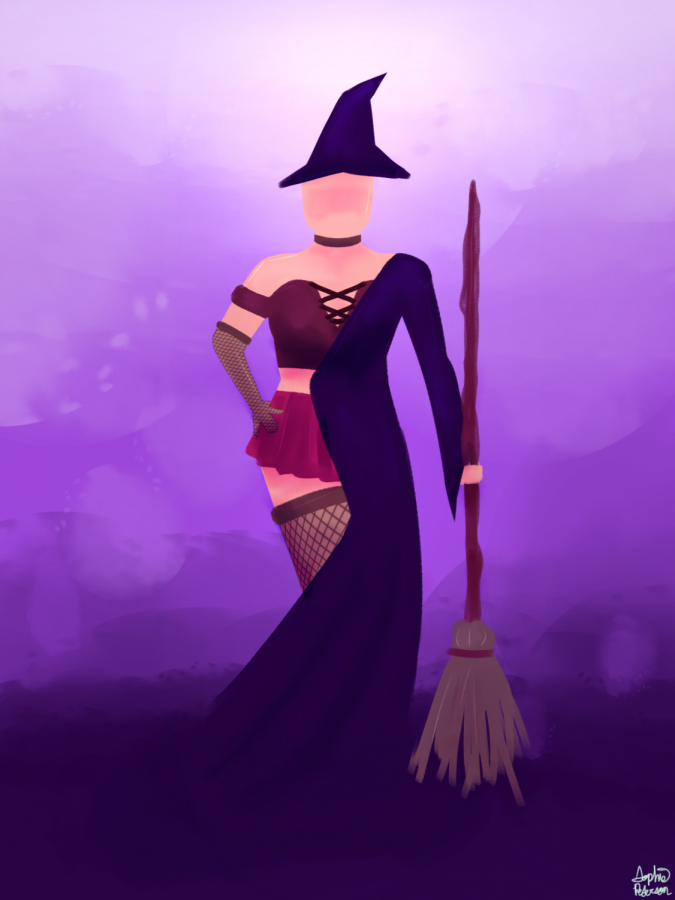Stereotypes In Feminine Halloween Costumes
October 29, 2021
Throughout history, women have been objectified and diminished by society. Since the
Womens’ Rights movement took off in the 1800s, women have fought for and gained the right to vote, as well as the right to work outside of the home and various other liberties they had previously been denied. Sexism, however, despite the positive changes the Womens’ Rights movement inspired, remains a prevalent issue. The stereotype that women use Halloween as an excuse to dress promiscuously is just one manifestation of these sexist assumptions.
In general, stereotypes are incredibly harmful because they put limitations on people
based on their race, religion, sexuality, gender or general appearance. When society attempts to put people into boxes, it is often hurtful and can create division. In this instance, the stereotype about Halloween costumes shames women for their decision (and right) to dress how they want.
Additionally, this stereotype generalizes women and makes it seem as though they have
to be either all for or against showing more skin, when in reality it doesn’t have to be like that. Some women feel as though they need to take a stance for or against covering up because of the stereotype and, as a result, it creates division among women.
“There are so many baseless societal standards made up to control the way in which
women dress or express sexuality,” said Sofia Hilgenberg, ‘23. “It can be incredibly empowering for a woman or anyone else to dress ‘sexy’ on their own terms, so it’s so incredibly lame that people feel the need to make comments or shame people for that.”
The clothes one wears have no bearing on the quality of a person, nor do they make
someone better or worse than anyone else. Individuality is often expressed through clothing and shouldn’t impact how a person is treated. No one should have to feel ashamed about their outfit choices or let others’ judgments or societal norms hold them back from dressing as they want. It is up to every individual to decide how much skin to show or not show, and those who opt to show more should be able to do so without consequences.
“Some people say a woman who dresses like a ‘slut’ deserves to be treated like a ‘slut,’
but women deserve respect no matter what they wear (or don’t),” said Alia Dastagir from USA Today.
For those who forgo sexy Halloween completely, she offered this advice: “No one should be made to feel like Cady Heron in Mean Girls”–that is, made to feel embarrassed or judged for how they dress.
Women and men alike should support each other, not tear each other down,
especially about something as trivial as clothing. It’s important to separate one’s own personal preferences from others’ preferences and to understand that these preferences often don’t, and won’t, always align.
Many times, no matter how one dresses, they might still face criticism from someone.
However, it is completely possible for women who dress differently to coexist without conflict. A lot of women’s Halloween costumes are sexualized because companies believe a lot of them want to dress up promiscuously. Plenty of women love to cover up. Both are fine and beautiful in their own right.
“It’s hurtful because most of the women’s costumes are stuff like ‘sexy nurse,’ so it’s hard
to find costumes that aren’t as revealing, which sucks,” said Sophia Gilliam ‘23. “But I think people, especially men, assume and kinda expect women to dress in revealing costumes. Even me, I feel like I’m too modest with my costumes because I’m not showing my boobs or butt. At least for me, I’ve been impacted by that stereotype because when I try to buy a costume everything is sexy stuff that I’m not comfortable wearing, but society assumes all women want to dress [promiscuously].”
Halloween is supposed to be a time to have fun with friends and family, not another way
to bring down women. Everyone should be able to dress up in what makes them feel good and not let anyone determine that for them.






























